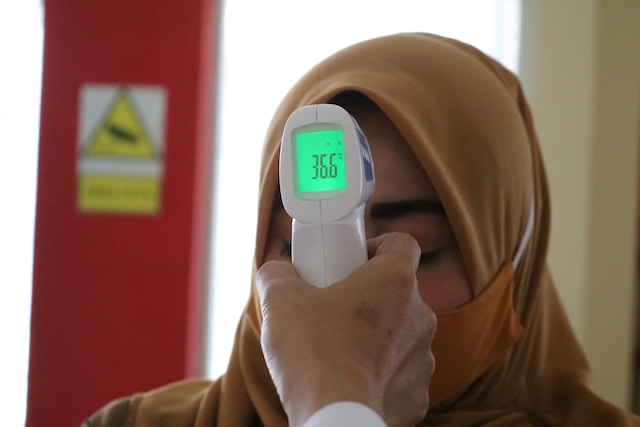Are you experiencing unusual fatigue, shortness of breath, or chest pains? While these symptoms could be signs of a variety of health issues, they may also indicate a potential heart problem. As the leading cause of death worldwide, it’s important to pay attention to any warning signs and seek medical advice from a qualified professional. In this blog post, we’ll explore the top 5 symptoms that could indicate a heart problem and provide insights from doctors on what actions you should take next. Don’t wait until it’s too late – read on for valuable information that could save your life!
What are the 5 top symptoms that could indicate a heart problem?
If you’re experiencing one or more of the following symptoms, it’s important to talk to a doctor about your condition: shortness of breath, chest pain, lightheadedness, sweating, rapid heart rate. These symptoms could be indicative of a heart problem and may require medical attention.
Other potential signs that suggest you have a heart problem include unusual fatigue or weakness, sudden weight gain or loss, sudden changes in exercise habits, angina (pain in the chest along with other symptoms such as nausea and difficulty breathing), and an irregular heartbeat (known as tachycardia). If you experience any of these signs or symptoms for more than two weeks, consult a doctor for further evaluation.
How do doctors determine if someone has a heart problem?
If you’re having trouble breathing, have chest pain, or experience other symptoms that seem to suggest a heart problem, it’s important to see a doctor. Doctors can use a variety of tests to determine if you have a heart problem and, if so, what kind. Some of the most common tests used to assess heart health include an EKG (electrocardiogram), an MRI (magnetic resonance imaging), and a CAT scan (computerized axial tomography). Often, doctors will also perform blood tests and an ECG (electronystagmogram) to look for signs of cardiac disease. If any of these tests indicate that you may have a heart problem, your doctor may recommend additional diagnostic tests or treatment.
How can you prevent or treat heart problems if you have them?
If you have any of the following symptoms, it may be time to see a doctor for an evaluation of your heart health: chest pain, shortness of breath, dizziness, nausea or vomiting, fatigue, unusual sweating. While there is no one definitive test that can diagnose a heart problem, many of these symptoms can be signs that something is wrong and require further evaluation.
Some common heart problems include coronary artery disease (CAD), high blood pressure (hypertension), arrhythmia (irregular heartbeat), and valvular heart disease (a condition in which valves in the heart are not working correctly). If you are experiencing any of these symptoms and they are new or worsening, it is important to seek out medical help as soon as possible.
There are several things that you can do to prevent or treat heart problems if you have them. First, make sure to get regular exercise — both aerobic and resistance activities — and maintain a healthy weight. Exercise can help to improve blood circulation and reduce stress levels, both of which can contribute to the development of heart problems. Additionally, avoiding tobacco products and excessive drinking can also help reduce your risk of developing heart problems.
If you do develop a heart problem, there are many treatments available. Treatment options may include medications such as beta blockers or ACE inhibitors; surgery including bypass surgery or valve replacement; or cardiac rehabilitation programs designed specifically for people with heart disease. It is important to speak with your doctor about what treatment
Conclusion
If you are experiencing any of the following symptoms, it is important that you see a doctor for an evaluation: chest pain, shortness of breath, fatigue, decreased sex drive, or rapid weight loss. If your doctor determines that you have a heart problem, they will work with you to find the best care and treatment plan for you.










